Having the right tools to perform basic DIY auto repairs and maintenance can save you time and money.
Our editors and experts handpick every product we feature. We may earn a commission from your purchases.Learn more.
Having the right tools to perform basic DIY auto repairs and maintenance can save you time and money.
Our editors and experts handpick every product we feature. We may earn a commission from your purchases.Learn more.
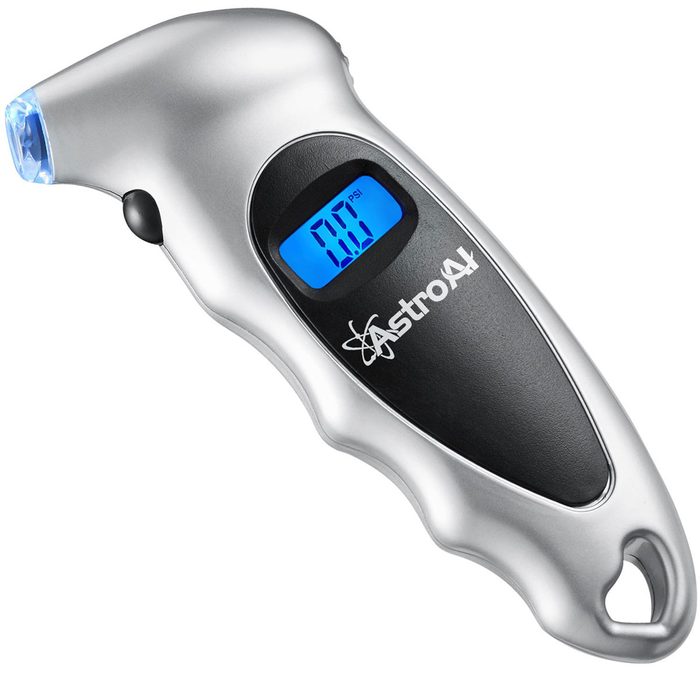
Performing regular tire maintenance involves using a tire pressure gauge to keep your tires properly inflated and check tire tread depth. Keeping on top of these tasks extends the life of your tires and helps you drive safely.
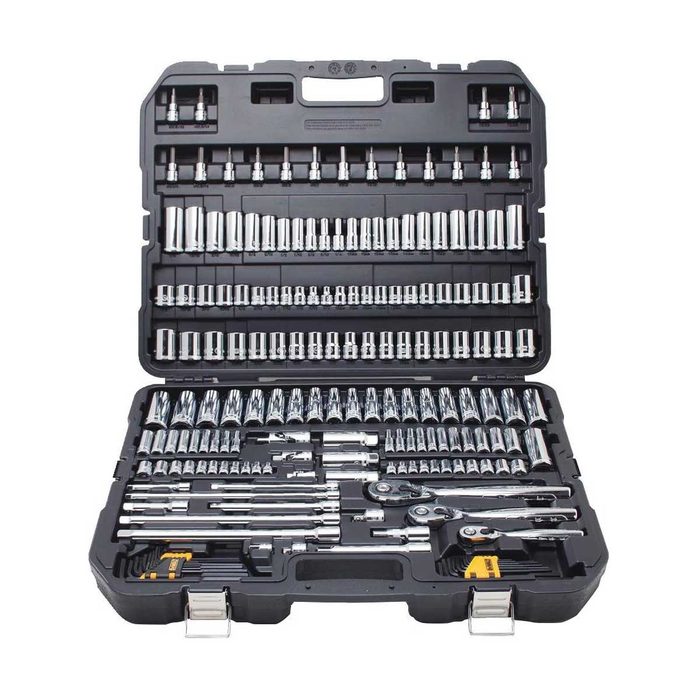
For auto repairs, a 1/4-in., 3/8-in. and 1/2-in. drive ratchet and socket set are the most important tools to have in your toolbox. Look for a set that includes different size spark plug sockets, socket extensions and Torx and Allen head sockets.
Consider six-point sockets. They grip a nut or bolt better than a 12-point socket, reducing the likelihood of rounding off a rusted or overtightened bolt head.
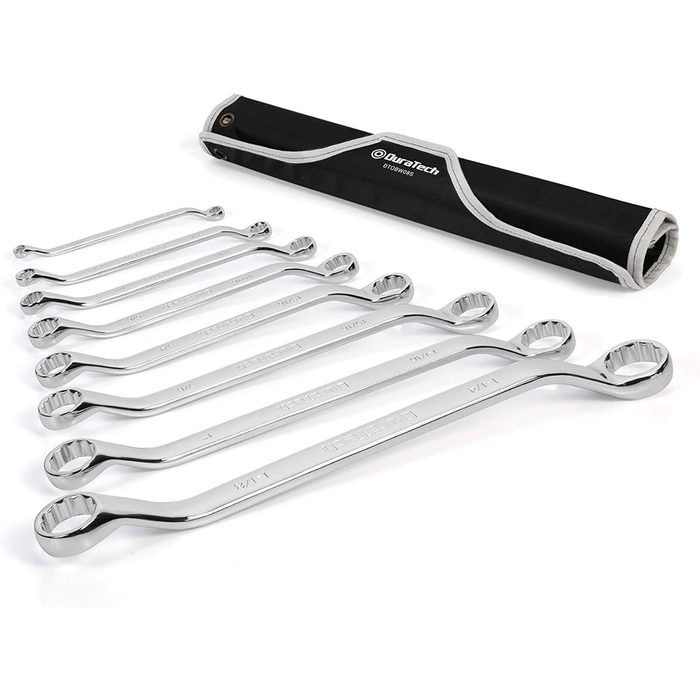
Box wrenches (shown here) and/or combination wrenches will speed up any repair. The open end of a combination wrench shouldn’t be used for final tightening or removing tight bolts. The jaws are weaker and can spread open, rounding off a bolt head or slipping off causing an injury.
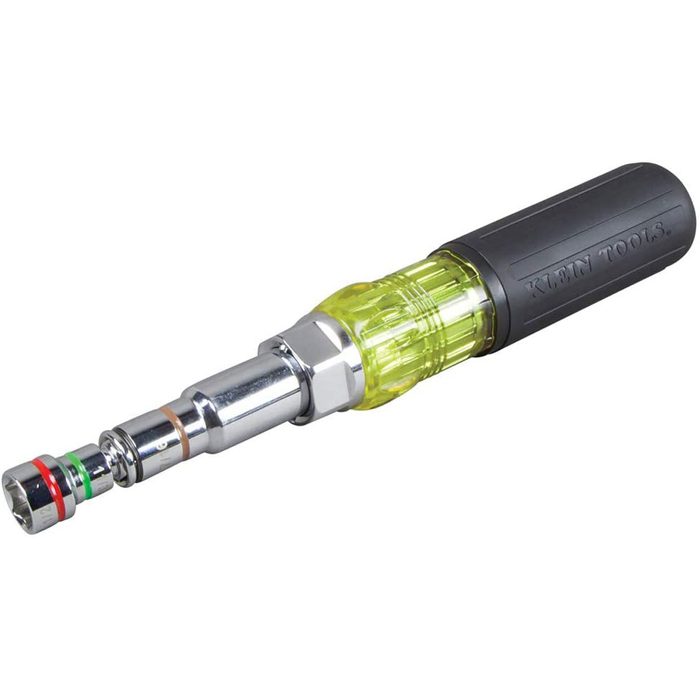
Nut drivers, or an all-in-one nut driver (shown here) that includes different size bits, are helpful when working around the dashboard.
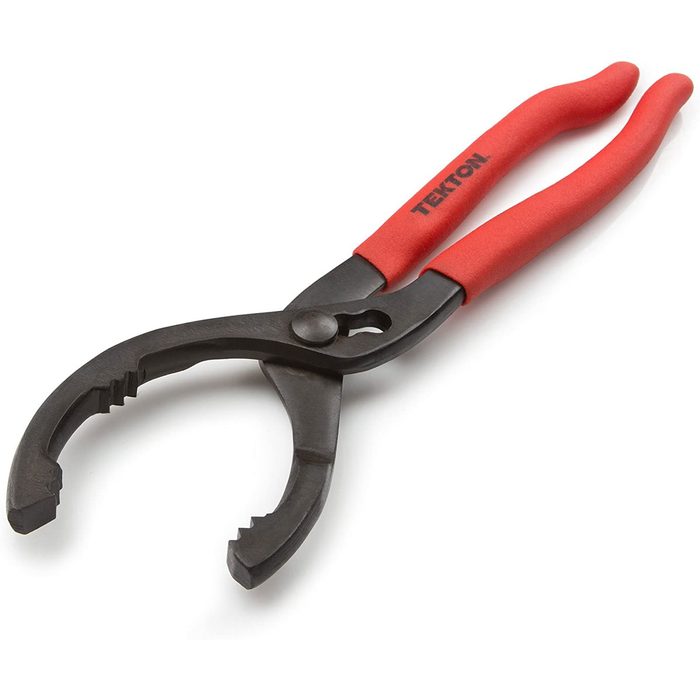
Having an oil filter wrench (shown here) and drain pan will make changing the engine oil and filter easier and less messy.
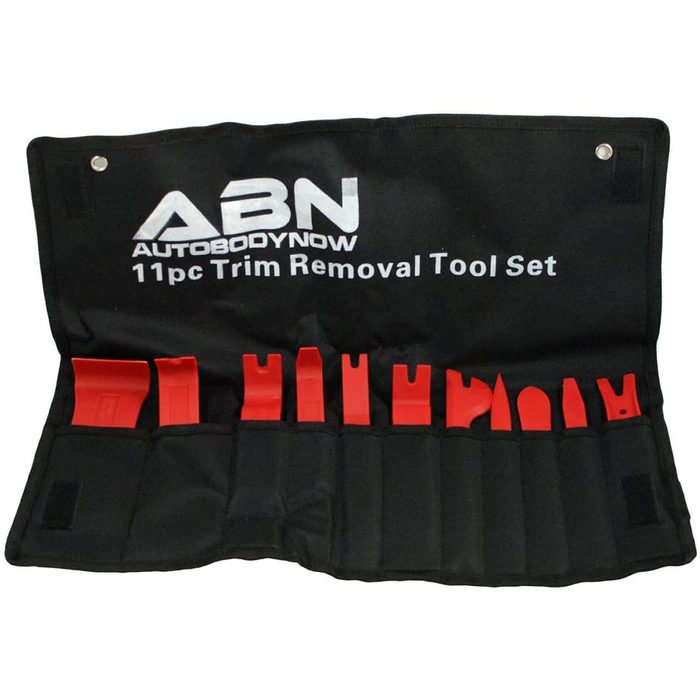
Door panel removal tools are necessary for safely taking off door panels and trim without damaging the trim or the finish.
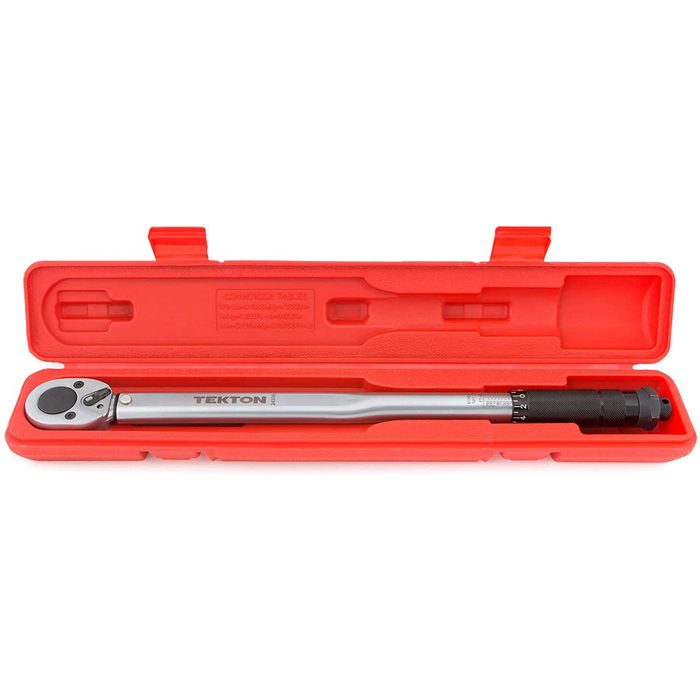
Never underestimate the value of a torque wrench. A fastener that is not tight enough might fall off, causing all kinds of issues. Too tight, and the fastener, or the part being tightened, might be damaged or become distorted. A 3/8-inch drive torque wrench should be your go-to tool for tightening spark plugs and engine parts made of aluminum or composite plastics.
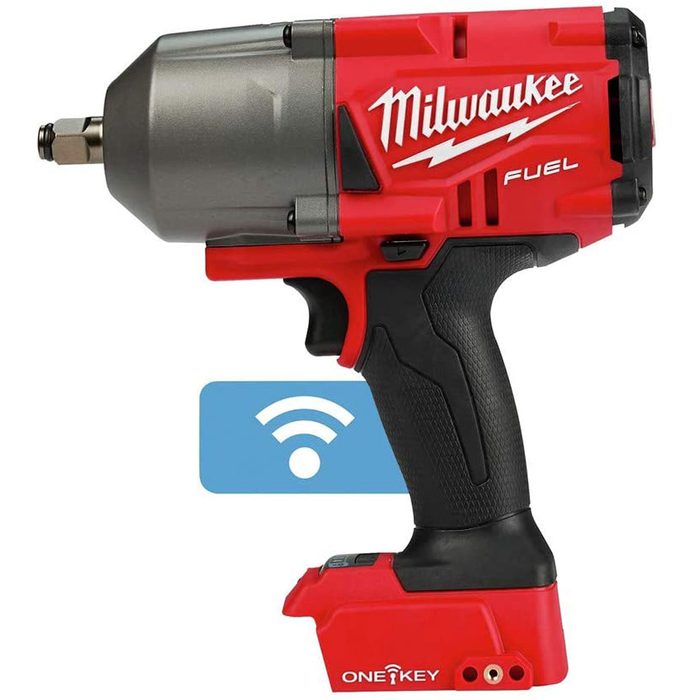
Today’s lithium-ion battery-powered 1/2-inch impact guns have the same torque output ratings and design configurations as their powerful pneumatic cousins. However, if you already have an air compressor, pneumatic power tools are your best choice.
If you remove your tires, ALWAYS choose a torque limiting socket when using an impact gun to tighten wheels, and ALWAYS re-torque the lug nuts with a torque wrench when your vehicle is on the ground. Power tools may seem like an indulgence, but they’re an excellent option to help auto repairs go smoother and easier.
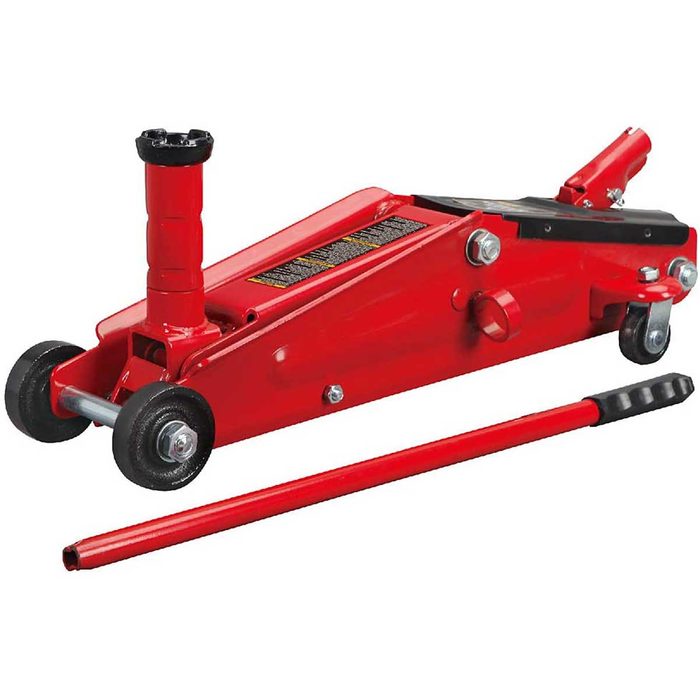
If you’re going to work under your car, a hydraulic floor jack (shown here) and a pair of jack stands or drive on ramps make it easier and safer. Quality garage equipment provides years of service, making it a worthwhile investment.
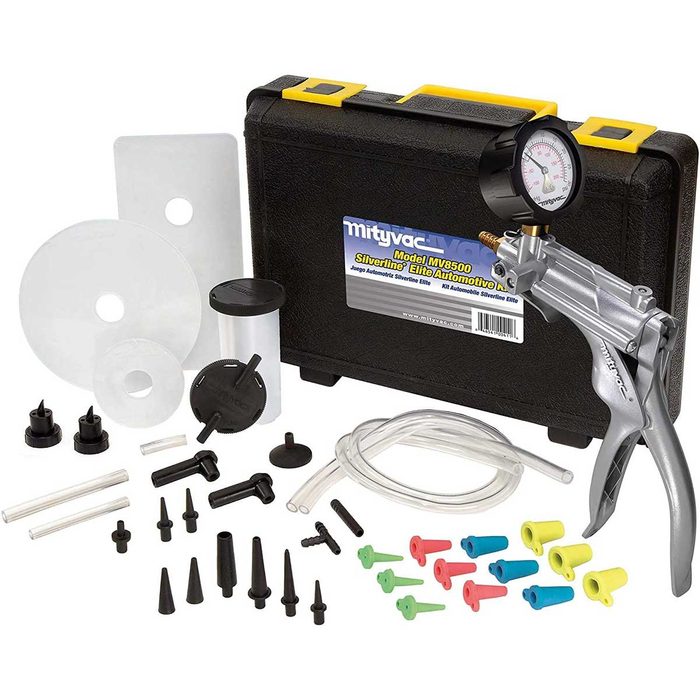
A handheld vacuum/pressure tester is a valuable tool to help diagnose why your car is running rough, and can help with bleeding brakes and flushing fluids.
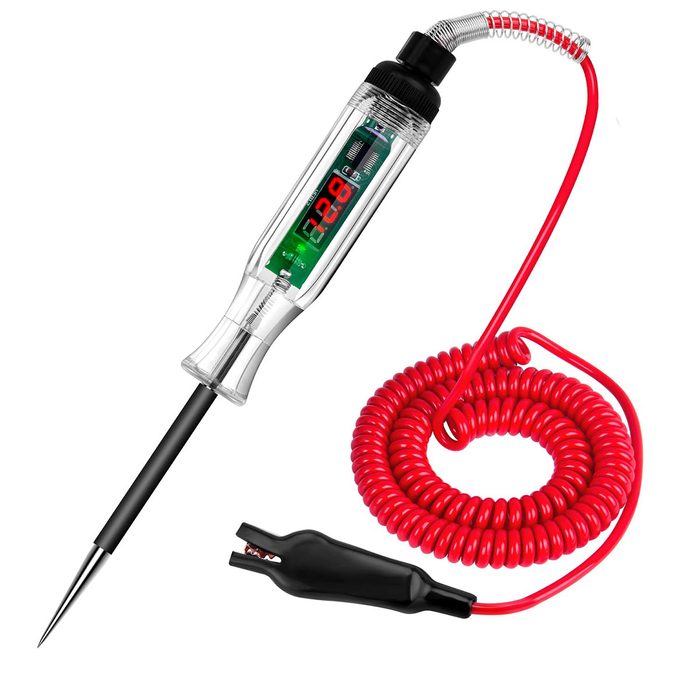
An inexpensive automotive circuit tester can help track down common vehicle electrical circuit and circuit connection problems.
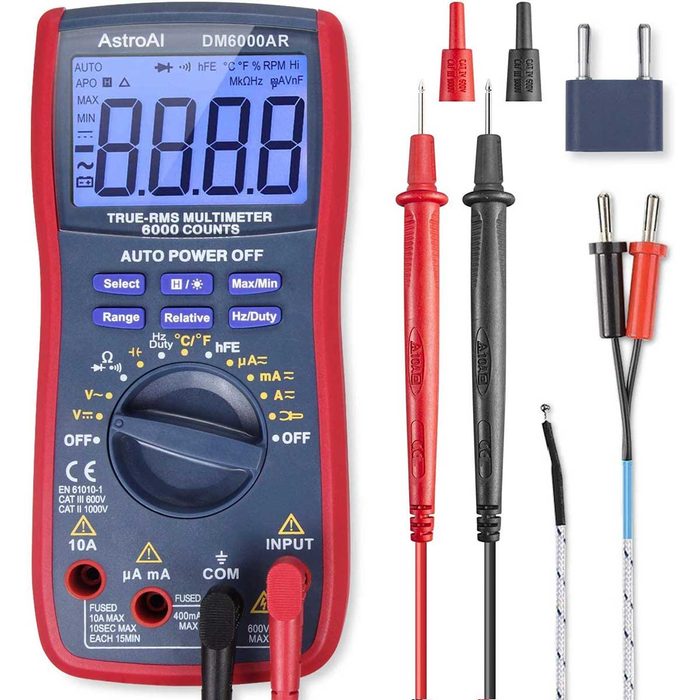
A digital volt ohm meter (DVOM) is a great tool to help troubleshoot charging systems and sensitive car electronic systems.
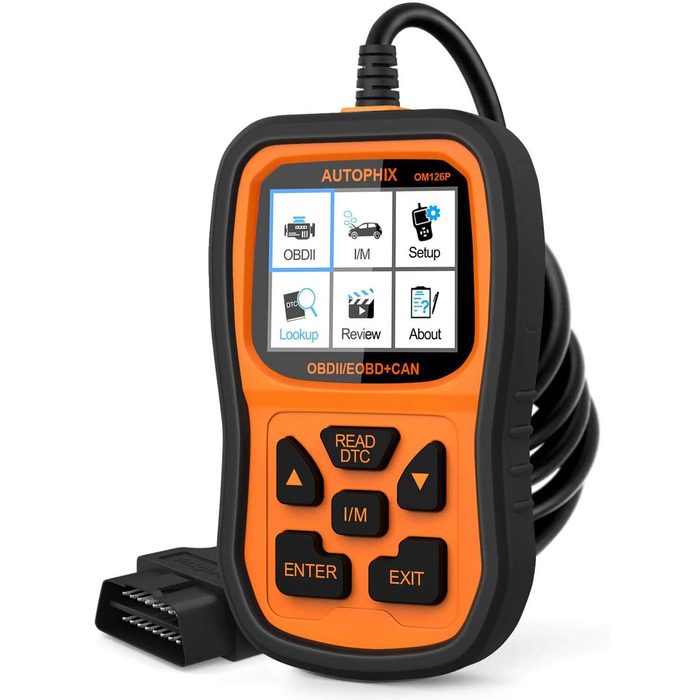
An OBDII (On-Board Diagnostics, Second Generation) Scanner reads diagnostic trouble codes (DTCs) stored in the computer (ECM) when the check engine light (CEL) comes on. Spend a few bucks more and get one that can turn the light off and clear the codes after you make the repair. Investing in a code reader can save you a costly visit to your mechanic. Here are a few more tips to help you save money on car repairs.
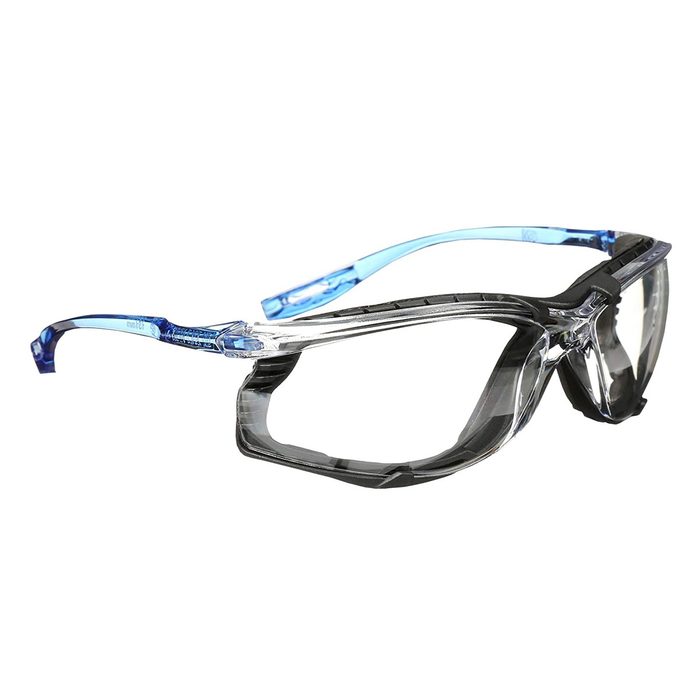
Safety glasses (shown here) are not optional when working around a car. Neither is a fire extinguisher. Accidents can happen quickly and when you least expect them. Use a respirator with replaceable filters if you’re using harsh chemicals, working on brakes or grinding metal or rust.
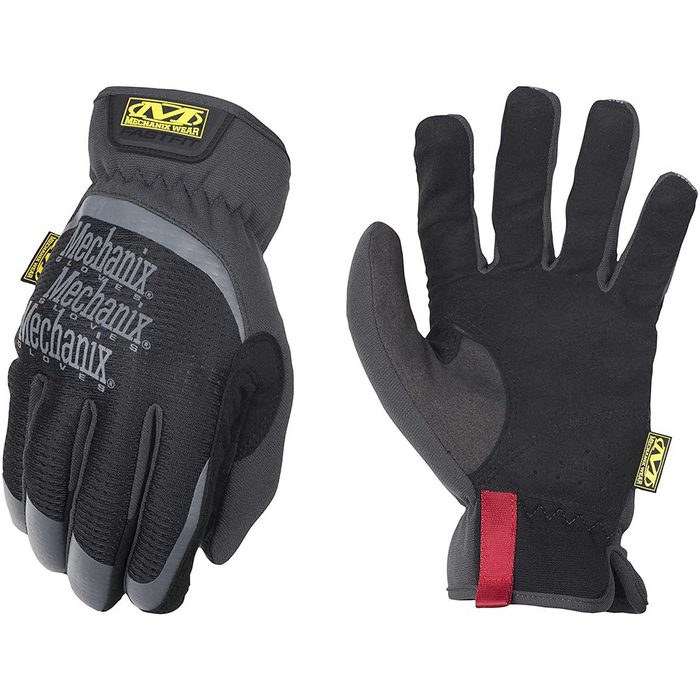
A pair of padded mechanic’s gloves (shown here) can help save you from breaking your knuckles and getting grease and grime under your fingernails — unless you want to flaunt it as a badge of honor. It’s also a good idea to keep a box of disposable nitrile gloves handy, as well as hand cleaner/degreaser designed for mechanics.

These are the tools every DIYer should have in their home toolbox. They can also be used for auto repairs and maintenance:
Before using any tools or equipment, be sure to read, follow and understand all manufacturer’s instructions on their proper and safe use.